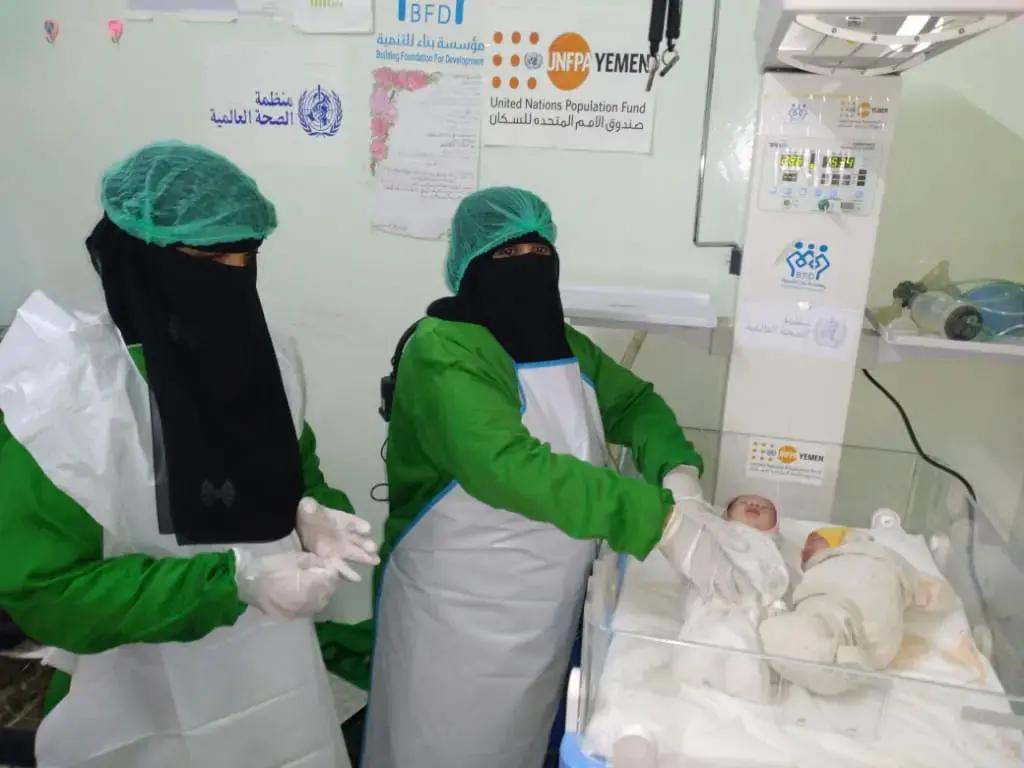The humanitarian crisis in Yemen continues to worsen; characterized by increasing needs – including hunger and COVID-19 – escalating conflict, and a collapsing economy. An estimated 24 million people – about 80 per cent of the population – is need of humanitarian aid and protection. Millions of Yemenis who depend on aid for survival are now hanging by a thread as humanitarian agencies, including UNFPA, run out of money to fund lifesaving assistance, while humanitarian needs continue to grow.
COVID-19 continued to spread across the country in July. By 31 July 2020, 1,732 confirmed cases of COVID-19 had been reported with 494 deaths and 864 recoveries. UNFPA remains a frontline partner to the COVID-19 response, ensuring the protection of health workers and women and girls accessing reproductive health services.
A fuel crisis that hit northern governorates in July added another shock to the humanitarian situation. If the fuel crisis continues, it poses a serious risk for the operation of services and programmes which are likely to reduce or shut down, including healthcare and protection services.
More than US$3.2 billion is required for the humanitarian response in Yemen in 2020. With only around $650 million of the $1.35 billion pledged received by the end of July, the aid operation in Yemen is teetering on the brink of collapse with grave ramifications for millions of Yemenis who rely on humanitarian assistance for survival.
UNFPA’s appeal for $100.5 million in 2020 received only 53 per cent by end July. If this funding trajectory continues, UNFPA will be forced to suspend operations further, including operations of the rapid response mechanism by August and women’s protection programme by October 2020. To keep reaching the most vulnerable women and girls up to the end of the year, UNFPA requires $47.1 million with an additional $20 million to respond to the COVID-19 pandemic.
Despite limited funding and challenges in operation on the ground, since the begining of the year, UNFPA's response has reached over 1.3 million women and girls with lifesaving reproductive health and protection information and services, with support to 56 health facilities, 48 safe spaces, 8 shelters and 7 specialized mental health centres.


